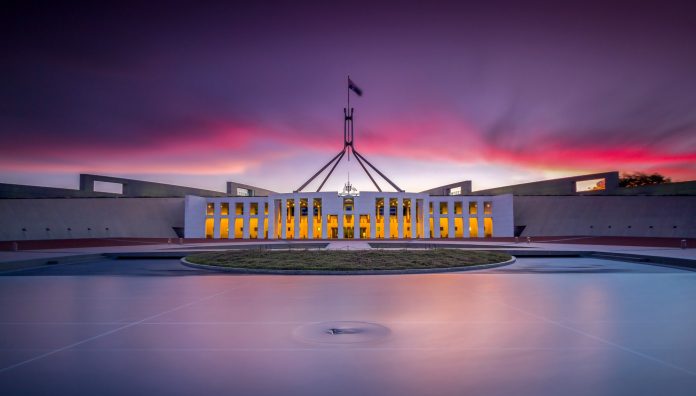When the Morrison Government was elected in May 2019, Covid-19 was unknown. Further, and despite suffering significant natural disasters in the recent past, Australia had never seen anything like the scale of the bushfires that were to come just six months later.
The coalition win at the time was deemed to be a ‘miracle’ – running totally contrary to widespread expectations of a Labour victory – but there was nothing miraculous about the scale of economic and social challenges that soon became the focus of the 46th Parliament.
In truth, the Coalition did a good job steering the national economy through one of the most challenging periods in Australia’s post-war history and history is likely to judge this parliament (i.e. Government and Opposition) well.
Despite initially seeing long job seeker queues on TV that were reminiscent of those seen during the Great Depression, Australia emerged from Covid-19 with the lowest unemployment rate in nearly 50 years. While inflation is now on the move after a decade of near record lows, Australia’s national inflation rate remains below that of all other developed Western economies – and certainly well below that of our close neighbours in New Zealand.
That said, like all governments, the Morrison Government made some mistakes and Australia’s voting public ultimately decided that it was time for change.
And so, the Albanese Government has been elected to lead Australia through the next three years with the 47th Australian Parliament set to open in early July 2022.
Unlike the period before the commencement of the 46th Parliament, the challenges facing the Australian economy are relatively clear. While climate change and political integrity were central themes during the election campaign, the future success of the incoming government will likely be judged on the degree to which the Albanese Government manages the looming economic challenges – and their consequent impact on the cost of living for everyday Australians.
“These pressing economic issues aren’t just about inflation and rising input costs for Australian businesses – they are quite complex and relate to Covid-induced supply chain issues, volatile energy and commodity prices, and a shortage of skilled and unskilled labour,” said ACAPMA CEO Mark McKenzie.
These economic challenges are further complicated by a changing geopolitical dynamic influenced by the Russia/Ukraine war and China rumblings in the Asia-Pacific – all of which point to a period of global economic uncertainty that is likely to be just as challenging as the past three years.
ACAPMA’s discussions with the incoming government (whilst in opposition) centred around the extreme nature of the worker shortage issues. While the dialogue was welcomed, it was suggested that any increase in migrant worker intake would need to be advanced with appropriate worker safeguards.
“We were fortunate enough to have some time with Richard Marles, the new Deputy Prime Minister, in early March, to discuss these issues and expressed our firm view that Australia’s labour supply challenges could not be solved by simply funding more free apprenticeships”, said Mark.
“We were told, in equally firm terms, that the new government was willing to explore potential worker supply solutions but that such solutions would need to demonstrate that they would not exacerbate wage underpayment issues”, added Mark.
In the short time since these discussions occurred, inflation concerns have escalated – and the cost of doing business has increased accordingly.
“In the last 48 hours alone, businesses operating in Eastern Australia have been advised that their annual electricity costs are expected to increase by between 13% and 18% on 1 July 2022 due to recent rises in wholesale electricity prices which have been driven by higher coal and gas prices globally,” said Mark.
Movements in the cash rate in Australia have also given rise to immediate rises in the cost of capital in recent weeks – an issue that is of significant business concern for asset laden industries like the Australian fuel wholesale and fuel retail industry.
“These increases in financing costs come at a time when many wholesale and retail businesses are already struggling with operational cashflows, given the current globally driven volatility of wholesale fuel prices”, said Mark.
Within this context, the future of the temporary fuel excise arrangements is a sensitive point of direct relevance to Australian fuel wholesale and fuel retail businesses.
“Any decision to change the current deadline for expiry of the current temporary excise reduction (i.e. midnight on 28 September 2022) will need to be discussed with industry well in advance, to avoid the financial pain experienced by many fuel businesses when the cut was first introduced”, added Mark
“We are also conscious of the new Government’s Industrial relations agenda given recent murmurings about a possible Government decision to revisit the establishment of the Road Safety Remuneration Tribunal (RSRT) for transport workers”, said Mark.
ACAPMA will be meeting with the relevant government Ministers in coming weeks to discuss these and other issues.
“We are committed to working with the new Albanese Government in a constructive and positive manner as we collectively face a series of challenges in the next three years, that are likely to be just as difficult as those faced over the past three years”, concluded Mark.
ACAPMA
Published with permission from ACAPMA.
Source: https://acapmag.com.au/2022/05/the-47th-parliament-of-australia/.





